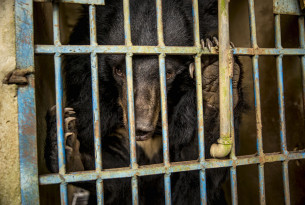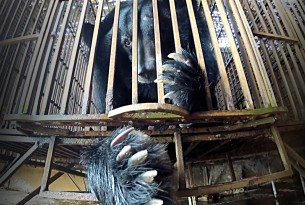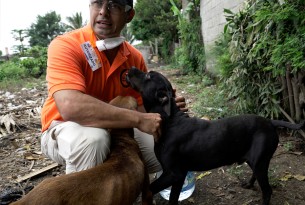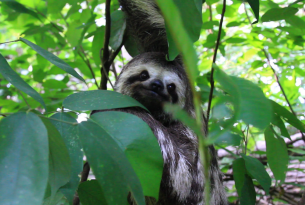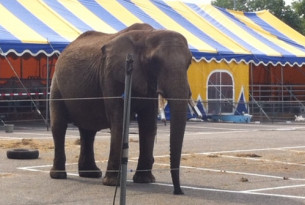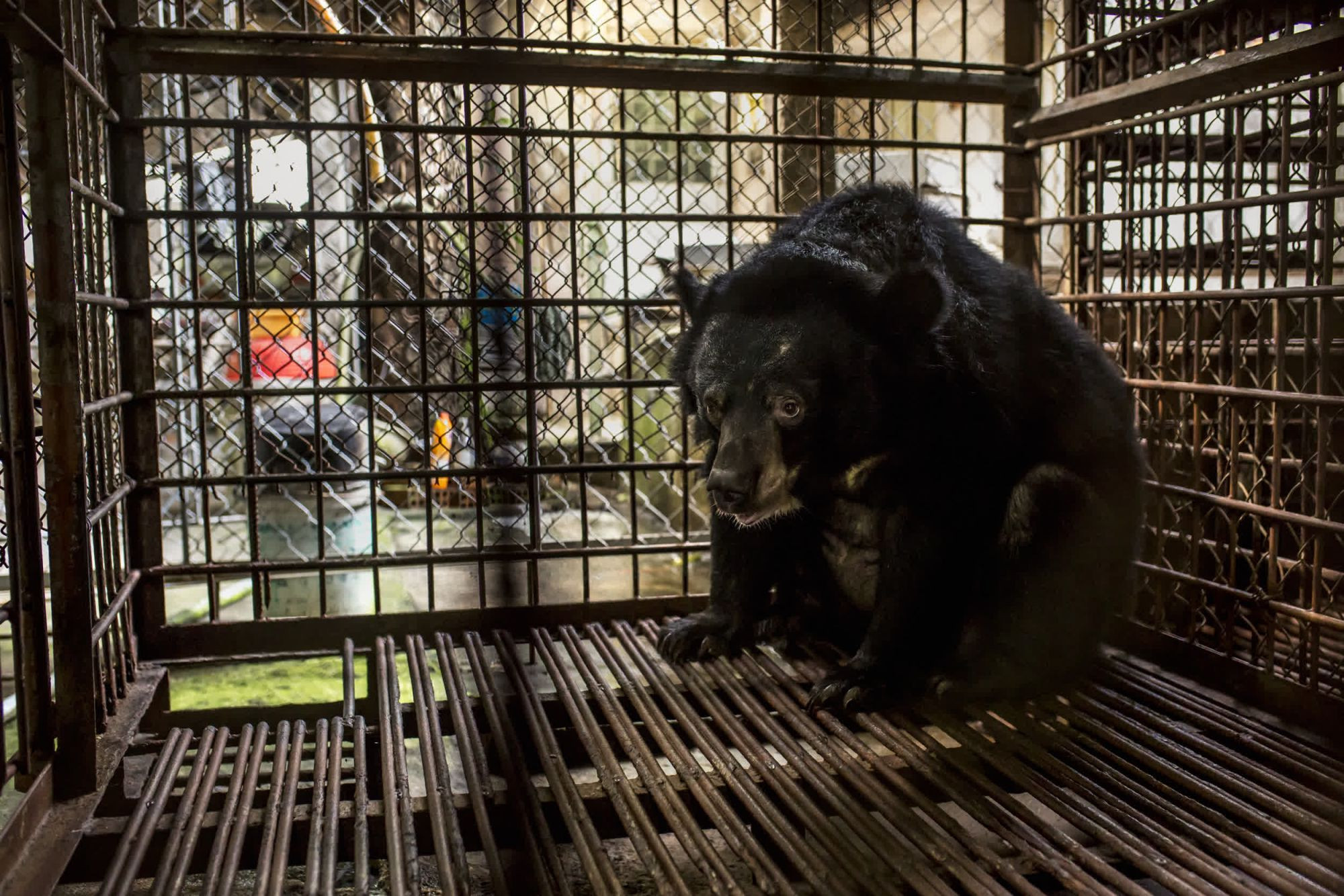
Working to end bear bile farms in Vietnam
Our partner Education for Nature (ENV) fights to curb the demand for bear bile and put a stop to bear bile farming. Read about a day in the life of ENV's vice-director, Ha Bui, and share in her dedicated work to protect bears from suffering
Since 2009, the amazing generosity of our supporters has helped us work with our partner ENV and support their efforts to end bear farming in Vietnam. We helped fund their wildlife crime unit that in 2017 answered more than 300 hotline calls and investigated nearly 200 crimes related to bears.
This inspiring organization also works hard with national and local governments to change and strengthen laws protecting bears and to raise public awareness. Ha Bui, ENV’s dedicated vice-director shares one of her days...
6:00 am: With two bear officers and three volunteers I head out of our ENV office in Hanoi to visit Phuc Tho District. This is a ‘bear hotspot’ in the suburbs where 180 bears are having their bile painfully extracted in more than 30 bear farms.
Raising awareness of the cruelty of bear farming and getting Vietnamese people behind us is central to our work. So today we are holding an exhibition at Gach Market. I’ll also meet several commune (local government) leaders to discuss how we can work together to end bear farming in Vietnam and particularly in the hotspots in their areas.
6:45 am: We arrive at the market. It’s a popular place with local people strolling through the roadside stalls to buy food for their families’ meals and we often exhibit here. Last year we organized more than 30 public awareness events and collected 40,000 pledges from people committing not to use bear bile.
We waste no time setting up our stands, laying out our bear protection posters, stickers and other materials to get the ball rolling. We also make sure our public service bear protection announcements are playing on the 32-inch LCD screen. Their messages are simple: they highlight the suffering the bears endure, the illegality of selling and buying products containing the bile and how consumers can help to protect bears.
7:30 am: The market is already bustling with hundreds of people. Our three volunteers are equipped with pledge cards that aim to get people to commit to not consuming bear bile. Shortly, they’ll be greeting shop owners and shoppers, persuading them to sign the pledges, and encouraging them to take a look at our exhibit.
I see our bear officers are already talking to curious passers-by. They are explaining about the two different bear species of Vietnam, how the bear bile industry affects them and why they need our protection. I think it’s going to be a busy day for all of us.
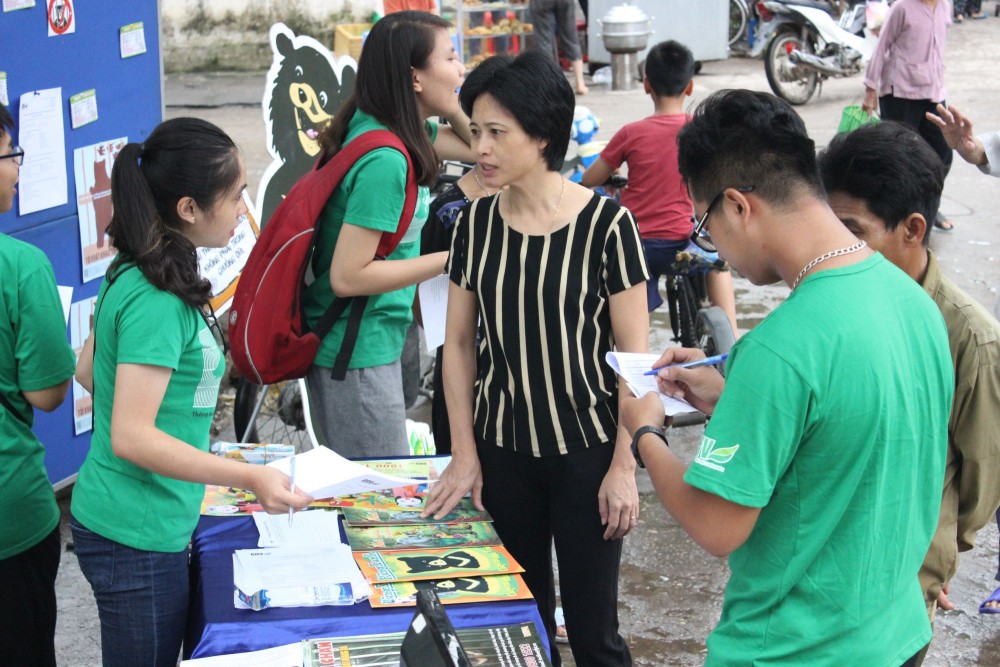
Education matters: The ENV team regularly meet local people in city centres and markets and urge them not to use bear bile products. Pictured: ENV's vice-director Ha Bui at a bear exhibit in Phung Thuong market.
9:30 am: Ready for my meetings, I leave the exhibit organizers to it and head to the offices of the People’s Committee of Phuc Tho Town and Phung Thuong Commune. The commune leaders, and representatives of the Youth Union, Women’s Union and Farmers’ Union, all welcome me. They agree that bear farming should be ended in their localities but are silent when it comes to solutions.
Thankfully, I am prepared for this. I provide some suggestions for each union and for the two communes on how to expedite an end to bear farming. My suggestions involve the need for consistent and regular communications with bear farm owners that bear farming is ending in Vietnam. I also emphasize that bear farm owners should not wait for or expect compensation. Through their direct communications with bear farm owners, I hope these groups will be instrumental in making bear farming in Phuc Tho a thing of the past.
1:15 pm: After the meetings and an hour’s ride from Phuc Tho back to the office, I finally sit down with my legal team for our daily meeting. This meeting is an important ritual; it allows all of us to update on our progress and brainstorm new, long and short-term ideas for the upcoming period.
Today, we discuss recommendations to Decree 157, a potentially vital piece of legislation regarding bear protection. But it still doesn’t include the crucial penalties needed regarding bear farming and bear bile extraction.
Decree 157, alongside the potential passage of another decree focusing on conservation facilities, will be critical in our fight to end bear farming. The National Forest Protection Department and the Biodiversity Conservation Agency are identified as the key authorities work with on this.
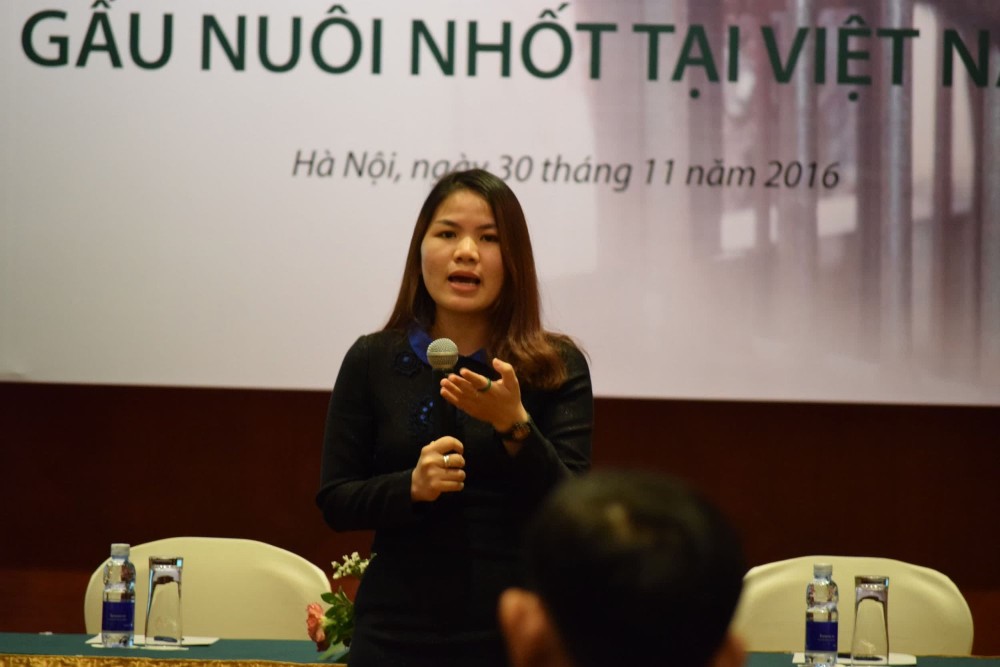
Speaking out: ENV works hard with with national and local governments to change and strengthen laws protecting bears and raising public awareness. Pictured: ENV's vice-director Ha Bui speaking at a bear management workshop.
3:30 pm: Good news! A district police department of Son La province calls to let us know about a smuggling case. Someone was caught red-handed illegally transporting a six-kilogram Asiatic-black bear cub for sale. Our Wildlife Crime Unit immediately contacts potential rescue centres in the hopes that one can care for him. Luckily, Soc Son Rescue Center has space and we will co-ordinate the little bear’s transfer. We all hope he will find his new home comfortable.
5:00 pm: A member of the National Assembly’s judicial committee calls asking me for some clarifications of our recommendations for the new penal code that we sent them earlier in the week. They are now in the final stage before submitting the drafted law. I’ve worked closely with this member during the drafting process and he always asks for advice when necessary.
I’m very happy because he says my explanations will enable him to confidently propose the recommendations to his boss. Once accepted this would mean that the maximum term in jail for wildlife crime would increase from seven to 15 years. He also invites me to the next judicial committee meeting on the penal code next week. I will definitely go to the meeting. What good news to end a busy day!
Shortly after Ha Bui wrote this article, the National Assembly accepted ENV recommendations and the penal code is now live. ENV is now watching to see how it will be implemented.
Find out more
Click here to see the see the latest news about our work to protect bears from the bile industry
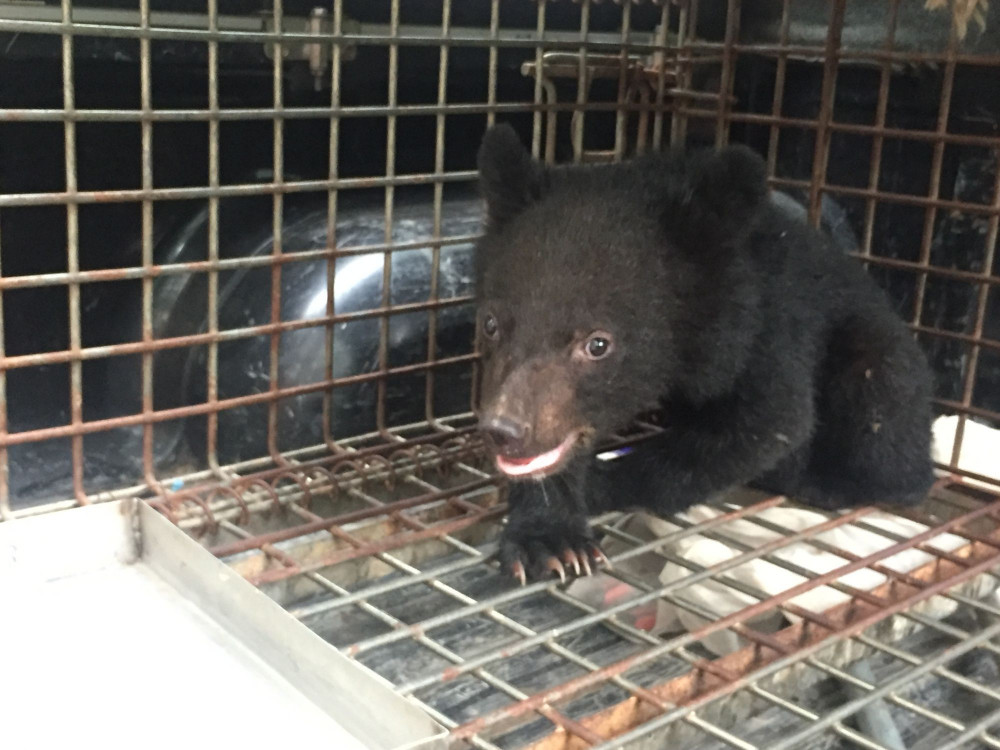
Rescued cub: This little bear is now safe in the Soc Son Rescue Center thanks to the work of the police, ENV and the centre. The ENV were tipped off by local police of an Asiatic black bear cub being smuggled for sale. The bear was rescued and transferred to center.
Top image: This Asiatic black bear has been kept captive in a very small cage for her entire life and used for bile until the extraction was made illegal in Vietnam in 2005. All the bears at this farm are about 17-20 years old and all arrived as cubs. World Animal Protection helped the Forestry Department to microchip bears like this one in Dong Nai Province, Southern Vietnam, to ensure no new bears enter the now illegal industry.


